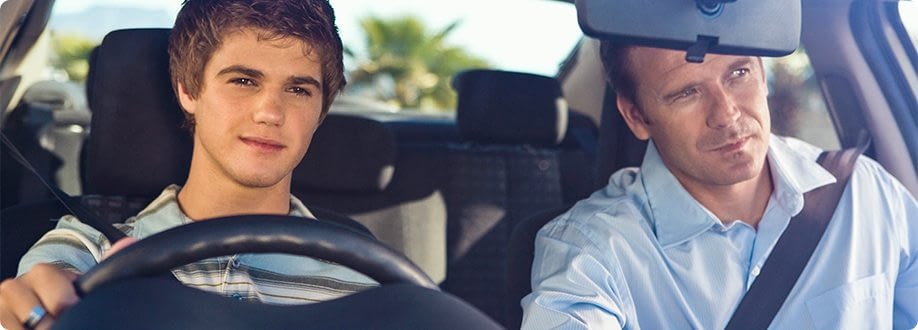

Pick your battles
Instead of presenting a long lecture about what your teen shouldn’t do, let’s stick to a few positives. Here’s what they should do:
- Communicate. That’s right! Discouraging your child from traveling without their phone isn’t a great idea. Emergencies happen, and it’s important that your teenager can get ahold of you. So encourage them to keep in touch, but remember not to get angry if they don’t respond to a text or a call right away. CBS News recently pointed out that many distracted teen drivers are actually responding to their parents’ insistent texts, so remember that patience can go a long way in helping your teen stay off his or her device in a moving vehicle.
- Be honest. Forty-one percent of teens say their parents model unsafe behavior while driving, and 28 percent of those parents justify it. When you catch yourself getting distracted behind the wheel, use the opportunity to lead by example, get refocused, and admit your mistake to your teen. Sometimes copping to your own blunders behind the wheel can help your teen understand that you make mistakes just like everyone else. Let your child know that honesty really is the best policy and that you won’t respond in anger if he or she admits to past inattentive driving.
- Get educated. Your teen should be aware of the consequences of distracted driving. Take some time to watch videos about how being compromised while driving can lead to a lifetime of regret. And consider attending a Students Against Destructive Decisions(SADD) event or starting a chapter in your community. Not only will you be taking a proactive stance, you can help make a difference alongside your child.
A fight worth having
Sometimes, you have to put your foot down. Once you’ve got the “shoulds” in place, you still have to take a look at the “shouldn’ts” — and then stick to them.
- Booze? You lose. This is one rule no one should bend on. Be kind but very firm when discussing alcohol and drug abuse with your teen, especially when it comes to operating a vehicle. Make sure they know they can call you — without judgment or punishment — if they’re faced with a situation that could result in a DUI or deadly crash. And encourage your child and their friends to take a pledgenot to ride with someone who’s under the influence.
- Follies aren’t funny. Showing off while driving (drag racing, blowing through stoplights and signs) can come at a much higher price than just a speeding ticket. Don’t hesitate to revoke driving privileges if your teen is in an at-fault accident or is caught behaving badly at the wheel.
- Just say no to multitasking. Being able to juggle a few projects at once might be commendable at school, but it’s a bad idea when you’re driving. This is your chance to lead by example: Don’t apply makeup, text, operate a GPS, or snack behind the wheel, even at stoplights. Show your teen that it can wait.
For more information
The National Highway Traffic Safety Administration (NHTSA) has great vehicle safety information at the click of a button. If you want to get involved in educating your community about the dangers of distracted driving, go check out Students Against Destructive Decisions (SADD). And for more safety tips of all kinds, visit Grinnell Mutual’s Front Porch.
The information included in this publication was obtained from sources believed to be reliable, however Grinnell Mutual Reinsurance Company and its employees make no guarantee of results and assume no liability in connection with any training, materials, suggestions or information provided. It is the user’s responsibility to confirm compliance with any applicable local, state or federal regulations. Information obtained from or via Grinnell Mutual Reinsurance Company should not be used as the basis for legal advice or other advice, but should be confirmed with alternative sources.
9.16
Filed Under: Auto Insurance, Blog | Tagged With: distracted driving, teens
